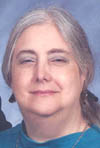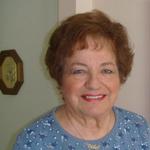OT/ Gov. report on Breast Cancer Screening
OT/ Gov. report on Breast Cancer Screening
Found this while surfing the web...ridiculous!
"A government task force said Monday that most women don't need mammograms in their 40s and should get one every two years starting at 50 — a stunning reversal and a break with the American Cancer Society's long-standing position. What's more, the panel said breast self-exams do no good, and women shouldn't be taught to do them.
The news seemed destined to leave many deeply confused about whose advice to follow."
Full story here:
http://www.comcast.net/articles/news-ge ... am.Advice/
"A government task force said Monday that most women don't need mammograms in their 40s and should get one every two years starting at 50 — a stunning reversal and a break with the American Cancer Society's long-standing position. What's more, the panel said breast self-exams do no good, and women shouldn't be taught to do them.
The news seemed destined to leave many deeply confused about whose advice to follow."
Full story here:
http://www.comcast.net/articles/news-ge ... am.Advice/
"Knowledge is power."
Re: OT/ Gov. report on Breast Cancer Screening
I think I'd want to hear from breast cancer survivors on this.
I also think that, women are primarily the ones getting mammograms and are at risk, no male should be allowed and opinion.
For myself -- I had my first mammogram at age 56. My now former PCP never suggested getting one, and I didn't like the idea of regular exposure of breast tissue to X-rays.
Of course, the same PCP also never suggested getting regular Pap smears, which might have detected the cellular changes BEFORE I had uterine cancer. My surgery would have been the same, but I'd've been spared the on-going fears relating to the Big C.
(Note: the said PCP also missed my sleep apnea, which is ironic, since, in so many people's minds, obesity = apnea, and his on-going harp to every problem was "Just stop stuffing your face and lose some weight and it'll all clear up..." even after I lost 180 pounds.)
I also think that, women are primarily the ones getting mammograms and are at risk, no male should be allowed and opinion.
For myself -- I had my first mammogram at age 56. My now former PCP never suggested getting one, and I didn't like the idea of regular exposure of breast tissue to X-rays.
Of course, the same PCP also never suggested getting regular Pap smears, which might have detected the cellular changes BEFORE I had uterine cancer. My surgery would have been the same, but I'd've been spared the on-going fears relating to the Big C.
(Note: the said PCP also missed my sleep apnea, which is ironic, since, in so many people's minds, obesity = apnea, and his on-going harp to every problem was "Just stop stuffing your face and lose some weight and it'll all clear up..." even after I lost 180 pounds.)
_________________
| Mask: TAP PAP Nasal Pillow CPAP Mask with Improved Stability Mouthpiece |
| Additional Comments: Sleepyhead software, not listed. Currently using Dreamstation ASV, not listed |
-- Kiralynx
Beastie, 2008-10-28. NEW Beastie, PRS1 960, 2014-05-14. NEWER Beastie, Dream Station ASV, 2017-10-17. PadaCheek Hosecover. Homemade Brandy Keg Chin Support. TapPap Mask.
Min PS = 4, Max PS = 8
Epap Range = 6 - 7.5
Beastie, 2008-10-28. NEW Beastie, PRS1 960, 2014-05-14. NEWER Beastie, Dream Station ASV, 2017-10-17. PadaCheek Hosecover. Homemade Brandy Keg Chin Support. TapPap Mask.
Min PS = 4, Max PS = 8
Epap Range = 6 - 7.5
Re: OT/ Gov. report on Breast Cancer Screening
Sorry, I don't have the time to read the link now, but I do want to throw something in.
I was at a party some months ago and a discussion came up with a doctor who was there. There had been a study that showed women who had regular mammograms have more breast cancer than those who don't. So the researchers were afraid that the radiation from the mammograms was causing the cancers.
Follow-up studies have been done and the researchers now think that women commonly have tumors that disappear on their own if left alone. So in the women without regular mammograms, many tumors arose, were undetected, and then disappeared. In women with regular mammograms, tumors with a tendency to disappear on their own were detected and removed surgically.
If anyone has a link to these studies, please post it.
I was at a party some months ago and a discussion came up with a doctor who was there. There had been a study that showed women who had regular mammograms have more breast cancer than those who don't. So the researchers were afraid that the radiation from the mammograms was causing the cancers.
Follow-up studies have been done and the researchers now think that women commonly have tumors that disappear on their own if left alone. So in the women without regular mammograms, many tumors arose, were undetected, and then disappeared. In women with regular mammograms, tumors with a tendency to disappear on their own were detected and removed surgically.
If anyone has a link to these studies, please post it.
Rooster
I have a vision that we will figure out an easy way to ensure that children develop wide, deep, healthy and attractive jaws and then obstructive sleep apnea becomes an obscure bit of history.https://www.youtube.com/watch?v=0ycw4uaX ... re=related
I have a vision that we will figure out an easy way to ensure that children develop wide, deep, healthy and attractive jaws and then obstructive sleep apnea becomes an obscure bit of history.https://www.youtube.com/watch?v=0ycw4uaX ... re=related
Re: OT/ Gov. report on Breast Cancer Screening
That whole last paragraph sounds like a total ignoramus referring (unknowingly) to cysts, which certainly show up in many women at various times, then go away on their own, and come back at irregular intervals. But they are not cancer! That "study" must have been done by mail order, the same as the degrees of the doctors doing it were acquired!
Re: OT/ Gov. report on Breast Cancer Screening
I can give an opinion and comments as a breast cancer survivor.
My cancer was not detected by the mammogram, but by an ultrasound that I requested to see why I was having pain. (Breast cancer rarely causes pain in early stages, I was told, don't worry.) The surgeon does not recommend ultrasound for detection of cancer, although in my case it was right on the money. Hmmm. I also had an MRI which did not detect cancer either.
The radiation causes damage to cells which make them denser and more difficult to read by mammogram. This makes me wonder about the efficacy of mammograms even more.
My cancer was very early stage. Some researchers are trying to get cancers of this nature renamed in spite of the fact that there are malignant cancer cells. The belief is that some cancers do not advance and can stay there forever. This is where I have confusion. When those early stage cancers are found, they are treated as cancer, even though they could in the future have a new non-cancer name. What would be the point of changing the name?
Those are comments. My opinion is that we need better non-invasive detecting methods. In the meanwhile, we need to use what we have. I have read many postings on the cancer forums, and I would rather have early detection than wait until the cancer becomes invasive and spreads. Those treatments are horrible. People suffer so much from the side effects of the treatment, not to mention the risk of death from cancer.
My radiation alone cost over $50,000, and that did not include the surgery and all that went with that. My Medicare and supplemental insurance paid every penny. I had no trouble in any way with the government insurance.
As a matter of fact, my early stage 0 cancer was treated aggressively even though it was small and still what is called "in situ" meaning it had not invaded beyond the original location. Once it was removed, that cancer was healed. Overall, I am glad it was found but I am not sure the aggressive treatment was necessary. Most likely, I would have been fine without the extensive surgery and without the radiation which has caused damage that will never heal and will continue to give me discomfort forever. There is also the risk that the radiation will cause future cancer or other health issues from damage to bones or lungs.
There was also the emotional impact of having cancer to consider, as well as the concern that once you have cancer you have the fear of its return. There is probably not much more risk than for someone who hasn't had cancer, but it is more in the back of the mind.
This is all still new for me as I am recently finishing the treatment.
Catnapper - Joanie
My cancer was not detected by the mammogram, but by an ultrasound that I requested to see why I was having pain. (Breast cancer rarely causes pain in early stages, I was told, don't worry.) The surgeon does not recommend ultrasound for detection of cancer, although in my case it was right on the money. Hmmm. I also had an MRI which did not detect cancer either.
The radiation causes damage to cells which make them denser and more difficult to read by mammogram. This makes me wonder about the efficacy of mammograms even more.
My cancer was very early stage. Some researchers are trying to get cancers of this nature renamed in spite of the fact that there are malignant cancer cells. The belief is that some cancers do not advance and can stay there forever. This is where I have confusion. When those early stage cancers are found, they are treated as cancer, even though they could in the future have a new non-cancer name. What would be the point of changing the name?
Those are comments. My opinion is that we need better non-invasive detecting methods. In the meanwhile, we need to use what we have. I have read many postings on the cancer forums, and I would rather have early detection than wait until the cancer becomes invasive and spreads. Those treatments are horrible. People suffer so much from the side effects of the treatment, not to mention the risk of death from cancer.
My radiation alone cost over $50,000, and that did not include the surgery and all that went with that. My Medicare and supplemental insurance paid every penny. I had no trouble in any way with the government insurance.
As a matter of fact, my early stage 0 cancer was treated aggressively even though it was small and still what is called "in situ" meaning it had not invaded beyond the original location. Once it was removed, that cancer was healed. Overall, I am glad it was found but I am not sure the aggressive treatment was necessary. Most likely, I would have been fine without the extensive surgery and without the radiation which has caused damage that will never heal and will continue to give me discomfort forever. There is also the risk that the radiation will cause future cancer or other health issues from damage to bones or lungs.
There was also the emotional impact of having cancer to consider, as well as the concern that once you have cancer you have the fear of its return. There is probably not much more risk than for someone who hasn't had cancer, but it is more in the back of the mind.
This is all still new for me as I am recently finishing the treatment.
Catnapper - Joanie
_________________
| Machine: DreamStation BiPAP® Auto Machine |
| Mask: AirFit™ P10 For Her Nasal Pillow CPAP Mask with Headgear |
| Humidifier: DreamStation Heated Humidifier |
Re: OT/ Gov. report on Breast Cancer Screening
http://breast-health.suite101.com/artic ... rs_regressrooster wrote: . . . tumors that disappear on their own . . . If anyone has a link to these studies, please post it.
Re: OT/ Gov. report on Breast Cancer Screening
This is a tough one to deal with. I have not and will get a mammogram based on: no history of an estrogen-mediated cancer in the family so I assume I do not carry either one of the genes associated with breast cancer, I use topical progesterone that activates the gene that protects against these types of cancer, mammograms expose these tissues that are already extremely vulnerable to damage from X-rays to X-rays, thermograms (detection of heat, cancerous cells produce more heat) are much more accurate. If I did have a family history or knew I carried either of those genes, I would periodically have an AMAS test which is near 100% accurate in detecting the presence of cancer cells...not location (yet as of my last investigation of AMAS) but the cells in the body. Plus, it has been theorized that we develop and successfully destroy perhaps as many as 500 cancers a year; the body is remarkable able to heal BUT we bombard it with substances that prevent optimal functioning and get fat which floods the body with pro-inflammatory chemicals that are theorized to undermine our long-term health. But, this is my choice based on my knowledge and my situation. My sympathy and best wishes go out to all who must deal with this devastating condition.
ResMed S9 range 9.8-17, RespCare Hybrid FFM
Never, never, never, never say never.
Never, never, never, never say never.
- katherinefulmer
- Posts: 106
- Joined: Tue Apr 28, 2009 2:30 pm
- Location: Houston, TX, USA
- Contact:
Re: OT/ Gov. report on Breast Cancer Screening
I discussed this issue with my doctor today. He said that reports of the research have it all mixed up. Self-checks aren't useless. Worry is useless (and dangerous).
He says ladies and gentleman should both get to know their bodies so that if something feels different they can call their doctor's office and schedule an appointment. Word for word he said, 'If you find something, don't worry it's nothing but you should call the nurse here because she's really good at making sure you know it's nothing even as she schedules you for an appointment.'
This community knows to take our health in our hands. That means getting to know what feels normal, and what feels off. We also know that comfort and encouragement really help during recovery, or during the wait for a lab result.
I'm glad you posted this article SleepyT. I know in medicine and other areas we are realizing we may have gone overboard in certain areas. We're trying to scale back to promote health and fiscal responsibility. X-rays, vaccines and the like are being widely debated on our forum and elsewhere. When it comes to my hands and my tissue though - I see no reason not to self-check.
He says ladies and gentleman should both get to know their bodies so that if something feels different they can call their doctor's office and schedule an appointment. Word for word he said, 'If you find something, don't worry it's nothing but you should call the nurse here because she's really good at making sure you know it's nothing even as she schedules you for an appointment.'
This community knows to take our health in our hands. That means getting to know what feels normal, and what feels off. We also know that comfort and encouragement really help during recovery, or during the wait for a lab result.
I'm glad you posted this article SleepyT. I know in medicine and other areas we are realizing we may have gone overboard in certain areas. We're trying to scale back to promote health and fiscal responsibility. X-rays, vaccines and the like are being widely debated on our forum and elsewhere. When it comes to my hands and my tissue though - I see no reason not to self-check.
Katherine Fulmer
Product Development Analyst
katherine.fulmer@cpaptalk.com
Laughter and tears are both responses to frustration and exhaustion. I myself prefer to laugh, since there is less cleaning up to do afterward. - Kurt Vonnegut
Product Development Analyst
katherine.fulmer@cpaptalk.com
Laughter and tears are both responses to frustration and exhaustion. I myself prefer to laugh, since there is less cleaning up to do afterward. - Kurt Vonnegut
Re: OT/ Gov. report on Breast Cancer Screening
Sleepy's original article states the American Cancer Society still stands by their recommendations and that's good enough for me. I've had annual mammograms since about age 50(that's a lot) and once a small cyst was detected and later removed and biopsied just to be certain. My gyn also believes in periodic self-exams but not to the extreme. The direction we're going in worries me.
_________________
| Mask: Mirage Quattro™ Full Face CPAP Mask with Headgear |
| Additional Comments: 14/8.4,PS=4, UMFF, 02@2L, |
"Do or Do Not-There Is No Try"-"Yoda"
"We are what we repeatedly do,so excellence
is not an act but a habit"-"Aristotle"
DEAR HUBBY BEGAN CPAP 9/2/08
"We are what we repeatedly do,so excellence
is not an act but a habit"-"Aristotle"
DEAR HUBBY BEGAN CPAP 9/2/08
Re: OT/ Gov. report on Breast Cancer Screening
Worries me too, Dori. Quite a bit.DoriC wrote:... The direction we're going in worries me.
"Knowledge is power."
Re: OT/ Gov. report on Breast Cancer Screening
In harmony with the statements just made by katherinefulmer, I believe that it would be good if issues such as this one came to mind whenever discussions about healthcare occur that include statements about 'cutting waste by limiting unneeded testing and procedures.'
Everyone agrees there is waste and profiteering in the present system. But it is no easy matter to address that waste when, statistically and scientifically speaking, many important tests and procedures can easily be labeled 'unneeded' by someone going by statistics who is not personally in the position of wanting a particular test or procedure. How does one measure how badly someone wants something?
Laws and protocols based on statistical averages can be cumbersome and expensive to create and legislate in and of themselves, and the hands of those practicing the art of medicine can easily become tied up with but a different version of the same red tape that exists now. The choice may be somewhere along the continuum of cookie-cutter medicine at one end versus profiteering medicine at the other end. The bottom line is that it may be that frequent screenings earlier than 40 may be best for some women and not until 50 may be best for others depending on hundreds of quantifiable factors in any individual case--including such things as family history, medical history, lifestyle, and plain ole peace of mind. Who will measure those things in an intelligent way and then make the decisions based on the science of the moment? That is the question, it seems to me, since obviously if patients make those decisions strictly for themselves, there will always be unneeded testing and procedures, on the one hand, and then instances of preventable disease along with more costly procedures for those choosing not to be tested at all, on the other.
My above statements are not meant to be political. I don't have a position. It is a very complicated thing, seems to me. My statements are merely my personal attempt to figure out the issues.
For example, with the question at hand, is it that every woman should decide for herself whether and when to be screened, or is it that every woman should be forced into a pattern of screening based on someone else's judgment of her case, or should there be some combination of the two? Or is it politically incorrect to even ask that question?
Everyone agrees there is waste and profiteering in the present system. But it is no easy matter to address that waste when, statistically and scientifically speaking, many important tests and procedures can easily be labeled 'unneeded' by someone going by statistics who is not personally in the position of wanting a particular test or procedure. How does one measure how badly someone wants something?
Laws and protocols based on statistical averages can be cumbersome and expensive to create and legislate in and of themselves, and the hands of those practicing the art of medicine can easily become tied up with but a different version of the same red tape that exists now. The choice may be somewhere along the continuum of cookie-cutter medicine at one end versus profiteering medicine at the other end. The bottom line is that it may be that frequent screenings earlier than 40 may be best for some women and not until 50 may be best for others depending on hundreds of quantifiable factors in any individual case--including such things as family history, medical history, lifestyle, and plain ole peace of mind. Who will measure those things in an intelligent way and then make the decisions based on the science of the moment? That is the question, it seems to me, since obviously if patients make those decisions strictly for themselves, there will always be unneeded testing and procedures, on the one hand, and then instances of preventable disease along with more costly procedures for those choosing not to be tested at all, on the other.
My above statements are not meant to be political. I don't have a position. It is a very complicated thing, seems to me. My statements are merely my personal attempt to figure out the issues.
For example, with the question at hand, is it that every woman should decide for herself whether and when to be screened, or is it that every woman should be forced into a pattern of screening based on someone else's judgment of her case, or should there be some combination of the two? Or is it politically incorrect to even ask that question?
Re: OT/ Gov. report on Breast Cancer Screening
Thanks Jeff,jnk wrote:http://breast-health.suite101.com/artic ... rs_regressrooster wrote: . . . tumors that disappear on their own . . . If anyone has a link to these studies, please post it.
This whole subject intrigues and concerns me from several angles - political, economic, humanitarian - plus I have a wife, daughter and mother whom I want protected. Not to mention all my female friends. Maybe male friends also; I had an uncle who had a biopsy of a breast tumor (benign).
I will also get in touch with my friend "Jennie" who was involved in the discussion with the doctor at the party. Jennie is a breast cancer survivor and advocate for women's health - but I know she is very concerned that we are "overmamogramming" in the U.S. I want to get her opinion of the news release and find out what she recommends. Thanks catnapper for your comments and I will pass them on to Jennie.
Rooster
I have a vision that we will figure out an easy way to ensure that children develop wide, deep, healthy and attractive jaws and then obstructive sleep apnea becomes an obscure bit of history.https://www.youtube.com/watch?v=0ycw4uaX ... re=related
I have a vision that we will figure out an easy way to ensure that children develop wide, deep, healthy and attractive jaws and then obstructive sleep apnea becomes an obscure bit of history.https://www.youtube.com/watch?v=0ycw4uaX ... re=related
Re: OT/ Gov. report on Breast Cancer Screening
I would like to know the rest of the story on the statistics quoted by Reiling. For instance, were the 2,147 patients all diagnosed with routine annual mammograms? It could be that a large portion of them had suspicions (felt a lump, family history, etc.) and then had a mammogram.In the past five years, Charlotte-based Presbyterian Healthcare has treated 2,147 patients younger than 50 for breast cancer. That is more than 19 percent of the total breast cancer patients treated in the Presbyterian hospital system in that time period.
"We feel that even one life, let alone 2,147 lives, is too important to lose because of lack of early detection," said Dr. Richard Reiling, medical director of the Presbyterian cancer center.
"This makes no sense to me," said Dr. Etta Pisano, a mammography researcher at UNC Chapel Hill who published an influential national study in 2005 that prompted wider use of newer, digital mammography technology. "I am tired of the debate over this. There is plenty of evidence that mammography reduces breast cancer mortality."
Pisano cited studies showing that even mammogram screenings done by older technology reduce death rates by at least 15 percent for women in their 40s.
http://www.charlotteobserver.com/living ... 59923.html
Rooster
I have a vision that we will figure out an easy way to ensure that children develop wide, deep, healthy and attractive jaws and then obstructive sleep apnea becomes an obscure bit of history.https://www.youtube.com/watch?v=0ycw4uaX ... re=related
I have a vision that we will figure out an easy way to ensure that children develop wide, deep, healthy and attractive jaws and then obstructive sleep apnea becomes an obscure bit of history.https://www.youtube.com/watch?v=0ycw4uaX ... re=related
Re: OT/ Gov. report on Breast Cancer Screening
Rooster is right.rooster wrote:Follow-up studies have been done and the researchers now think that women commonly have tumors that disappear on their own if left alone. So in the women without regular mammograms, many tumors arose, were undetected, and then disappeared. In women with regular mammograms, tumors with a tendency to disappear on their own were detected and removed surgically.
Right about the existence of such a study, anyway. This was a large, well regarded study published in a mainstream, peer-reviewed journal, but the conclusion is controversial. There is no ethical possibility of studying the question in the usual way, by dividing patients randomly into treatment and no treatment groups, so the methodology was more indirect. I have not seen a citation to the study itself on the internet, but there is a discussion at http://www.medscape.com/viewarticle/584147 that explains it. I am reasonably sure that I saw a similar story in the Wall Street Journal about prostate cancer within the past couple of years, citing evidence that tumors may form and disappear before one catches hold and develops into symptomatic disease. I believe that the evidence in the case of prostate cancer involved biopsies that reveal cancer cells, followed by surgery in which no cancer can be found.
_________________
| Machine: AirSense 11 Autoset |
| Mask: ResMed AirFit™ F20 Full Face CPAP Mask with Headgear |
















